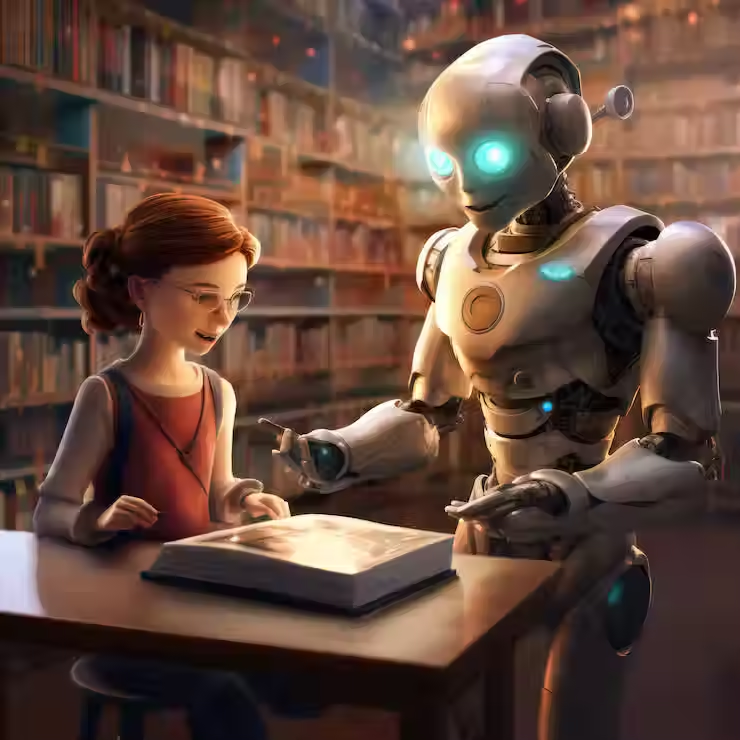How Can I Make My Homeschool Day More Creative With AI?
- marketing84542
- 2 days ago
- 4 min read

The biggest joys of homeschooling is freedom to get creative. You’re not tied to rigid school schedules, textbook-only lessons, or teaching styles that don’t fit your child. You can explore learning through art, play, writing, and curiosity — and now, with AI, that creative freedom has leveled up.
But how do you make sure AI tools actually support creativity rather than replace it?
Let’s look at how AI platforms like LittleLit can transform your homeschool day into a more dynamic, imaginative, and hands-on experience — without adding more to your plate.
Key Takeaways
Creativity is a key part of 21st-century learning — and homeschoolers can use AI to supercharge it.
With the right tools, AI can help kids write stories, create art, explore STEM, and build projects — all while thinking critically.
Platforms like LittleLit are purpose-built to bring creativity and AI together in a child-safe, homeschool-friendly way.
Can AI Really Support Creative Learning?
Yes — if it’s built the right way.
AI doesn’t have to mean passive screen time. The best AI platforms for kids act like creative coaches — guiding, suggesting, and sparking new ideas while still keeping your child in the driver’s seat.
Here’s what creative AI looks like in a homeschool setting:
It asks questions instead of giving answers.
It offers tools, prompts, and support — but the final creation is always your child’s.
It helps your child see learning not as a chore, but as something they can shape.
6 Creative Ways to Use AI in Your Homeschool Day
1. Use AI as a Storytelling Partner
With tools like LittleLit’s AI Writing Coach, your child can:
Brainstorm fun story ideas
Get help structuring paragraphs or plot
Add twists, dialogue, or even generate illustrations
Example:Have your child write a mystery about a lost robot. The AI can guide them through building suspense, introducing suspects, and wrapping up with a clever ending — but the ideas stay theirs.
2. Try AI Art + Journaling for Reflection Time
Use an AI art generator for kids (like LittleLit’s Magic Art) to:
Turn journal prompts into illustrated visual stories
Create posters, diagrams, or comics
Explore topics like seasons, emotions, or favorite books
Example:Ask your child to describe what “kindness” looks like. Then, using AI art, they can bring their idea to life and write a few sentences explaining it.
3. Run Creative STEM Missions with AI Tools
LittleLit includes AI-powered STEM prompts that turn abstract ideas into exciting projects. Think:
Designing a weather tool
Exploring habitats by building imaginary AI creatures
Creating simple science experiments supported by AI explanations
Example:Use the AI chatbot to research how a Mars rover works, then have your child build their own version out of recycled materials.
4. Gamify Learning with Interactive Prompts
Use AI to set up fun, challenge-based learning:
“Invent a new holiday and explain how it works using AI”
“Write a conversation between a pirate and a unicorn with opposite opinions”
“Create a riddle using three science facts you learned today”
Result:This keeps lessons fresh and allows kids to play with ideas, language, and logic in a low-pressure way.
5. Let AI Support Passion Projects
Have a child who’s obsessed with space, animals, fashion, or sports?
AI tools like LittleLit’s AI Chatbot can:
Suggest mini-projects based on their interest
Help them draft presentations or scripts
Offer facts and research for a deep dive
Example:Your child could create an AI-powered slideshow on their dream job or write a speech to convince the family to adopt a new pet — with the AI helping them structure their ideas.
6. Build Portfolios with AI Tools
Use AI to help your child:
Reflect on what they learned that week
Turn stories or research into illustrated “books”
Generate posters or timelines for your learning wall
Why it matters:Portfolios help kids take pride in their work — and give you tangible proof of learning for records or reviews.
Why Choose a Child-Friendly AI Platform?
Not all AI tools are built for children — and handing your child ChatGPT or a generic chatbot could lead to confusing, inappropriate, or overly complex results.
That’s why platforms like LittleLit are leading the way in AI for homeschoolers:
✅ Built-in safety + moderation
✅ Designed specifically for ages 6–14
✅ Guided creative missions, not open-ended prompts
✅ Integrates AI literacy, STEM, writing, and ethics
FAQs
Can I use AI even if I don’t follow a set homeschool curriculum?
Absolutely. LittleLit works whether you’re doing unit studies, unschooling, or using a boxed curriculum — it’s flexible and supports your flow.
How much screen time is involved?
LittleLit missions are designed to be done in 10–30 minute blocks. Most can be paired with hands-on or offline activities.
What ages is this best for?
LittleLit is best for ages 6–14, with age-appropriate tools for different grade levels.
Does my child need to know how to type or code?
Nope! Most interactions are chat-based, voice-friendly, and beginner-level.
Is there a way to track what my child learns?
Yes — LittleLit offers teacher/parent dashboards, downloadable work, and weekly progress summaries.















